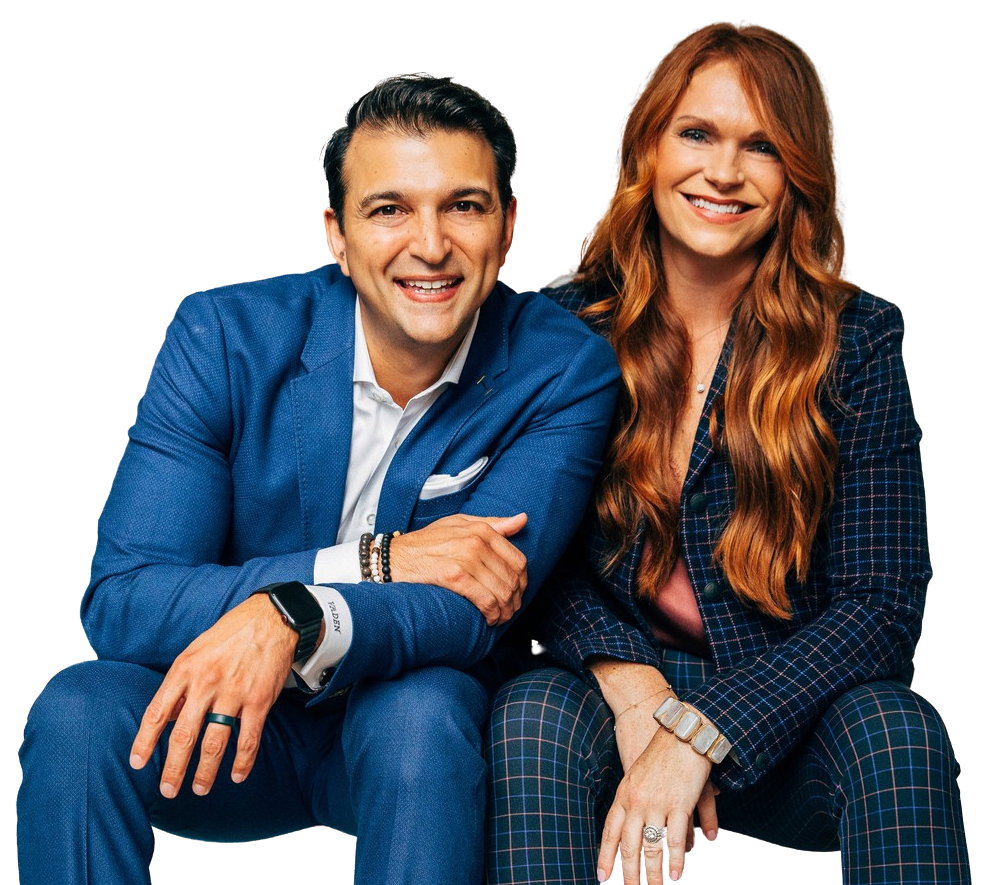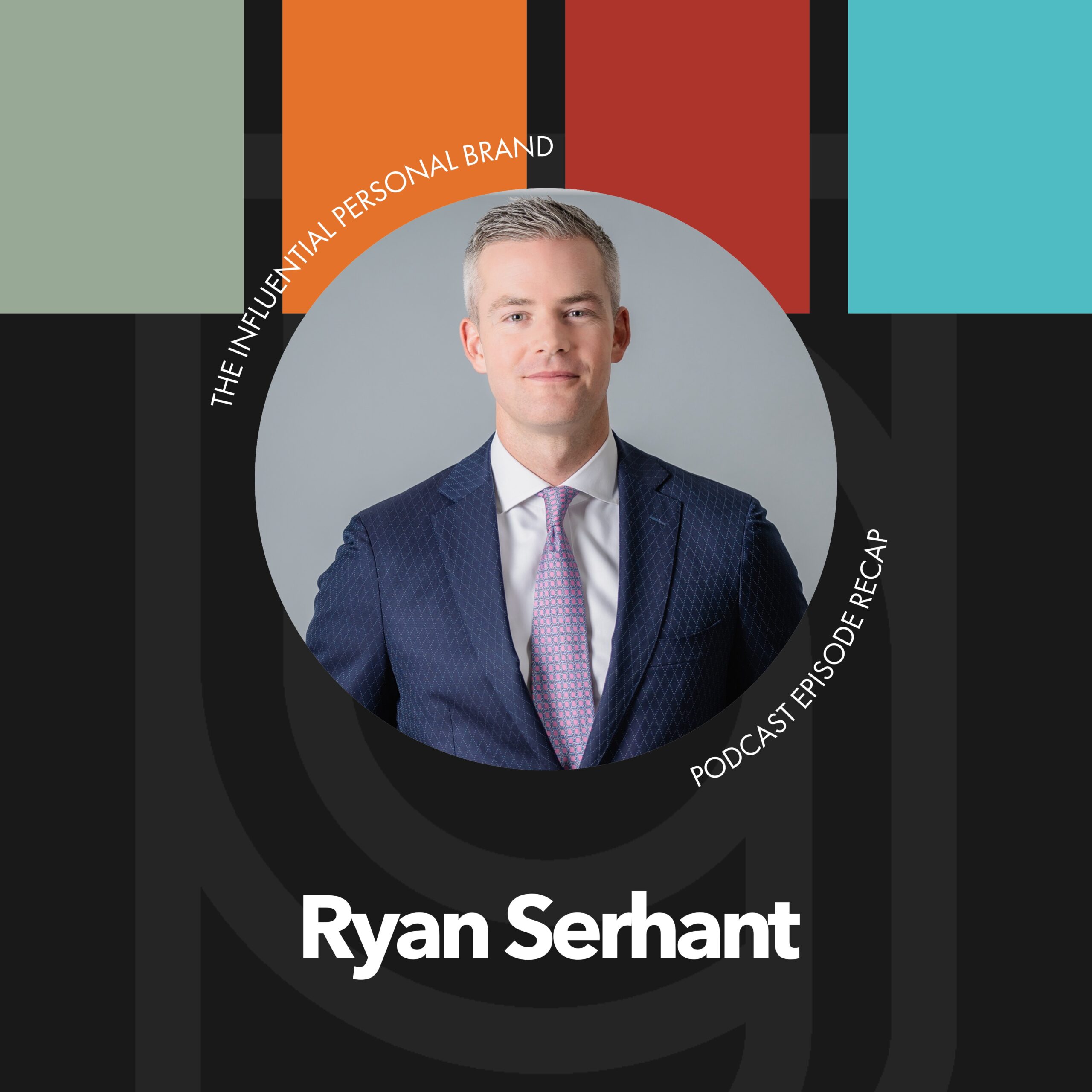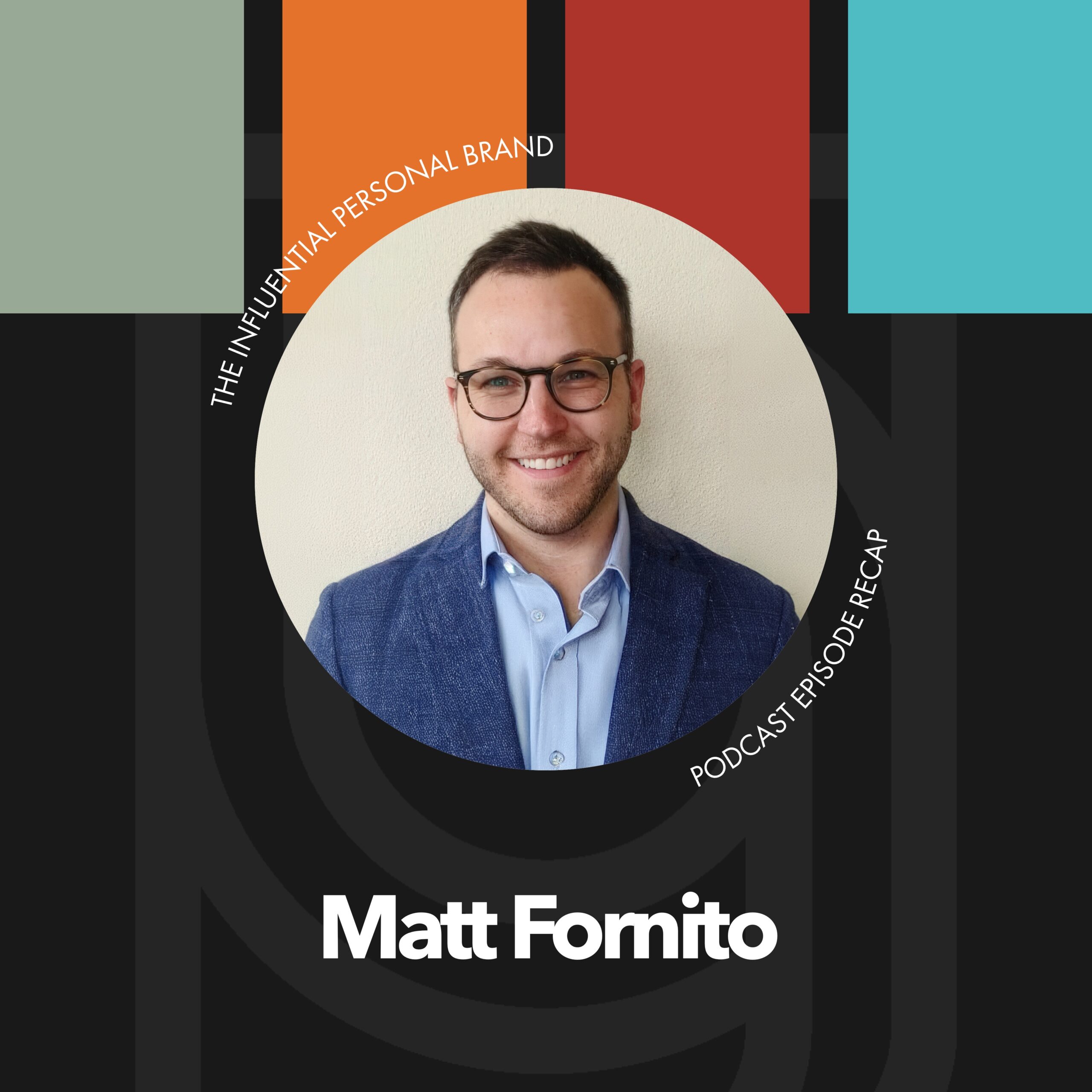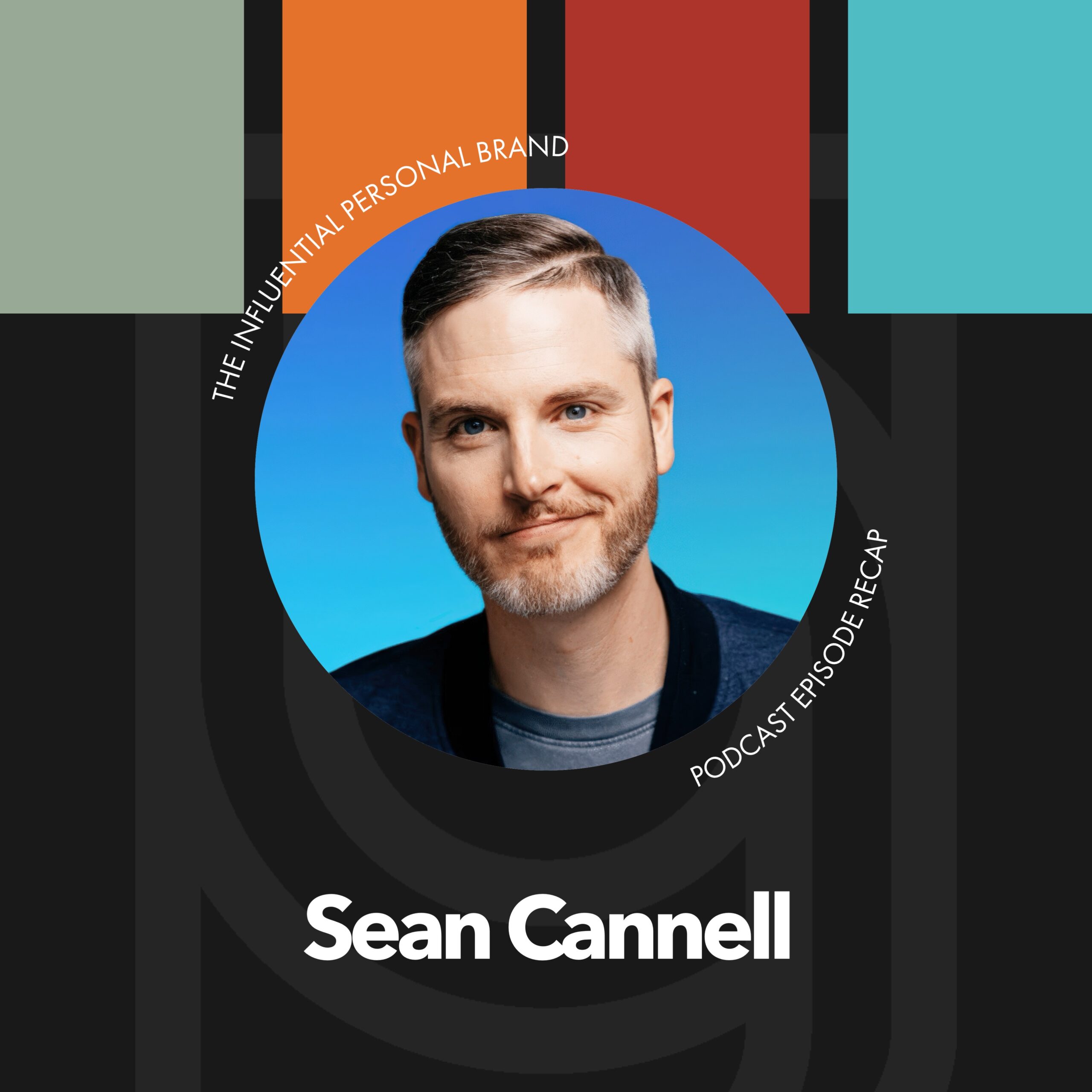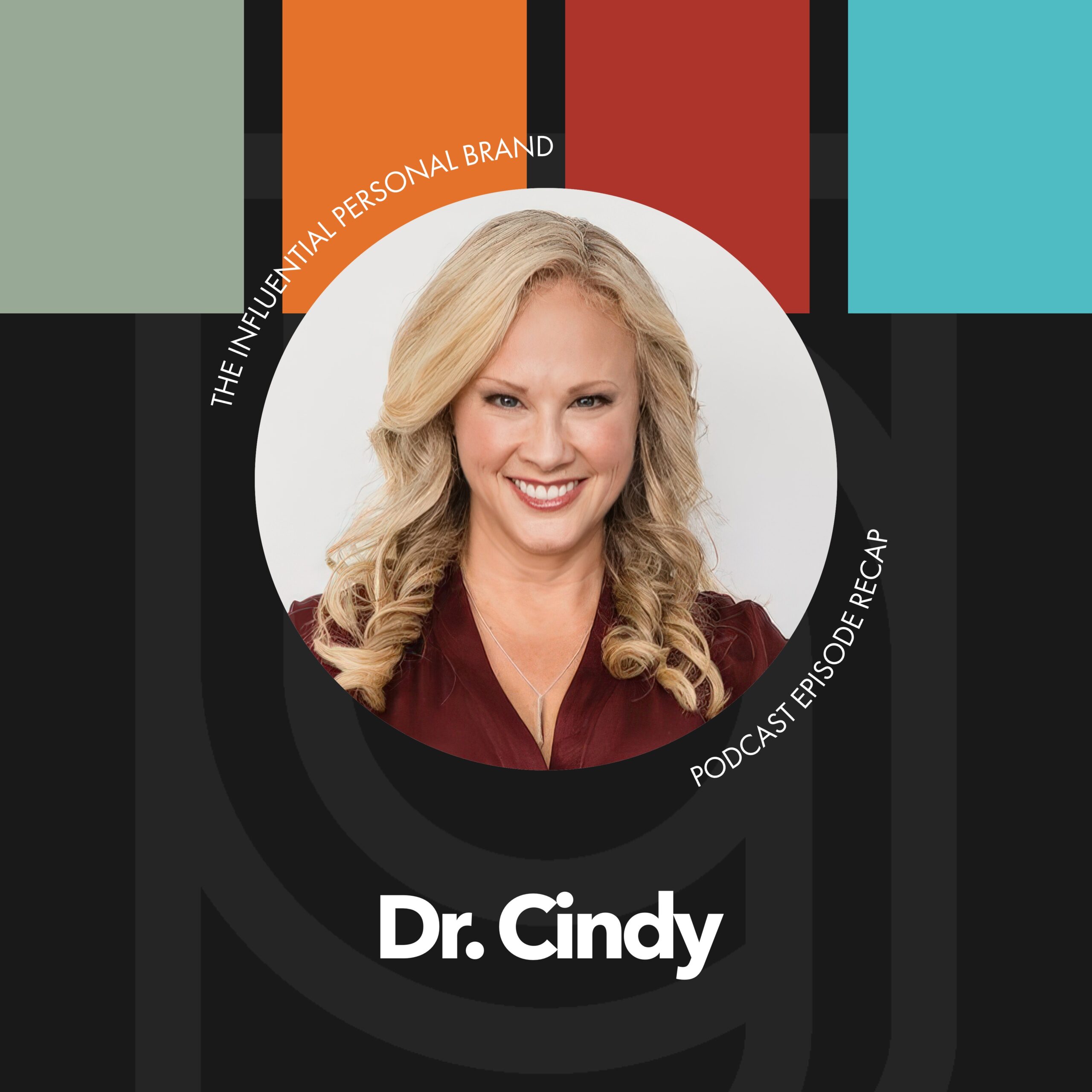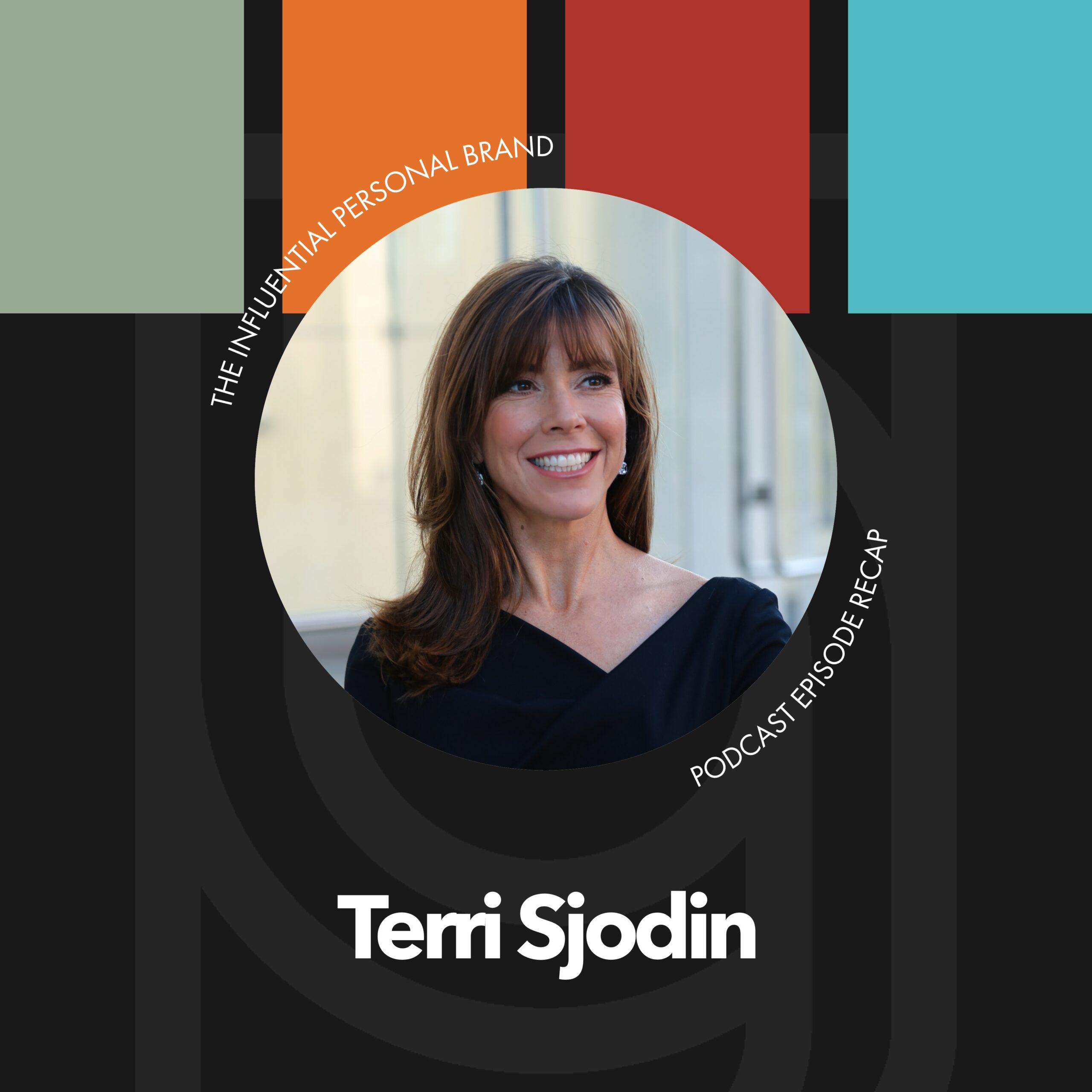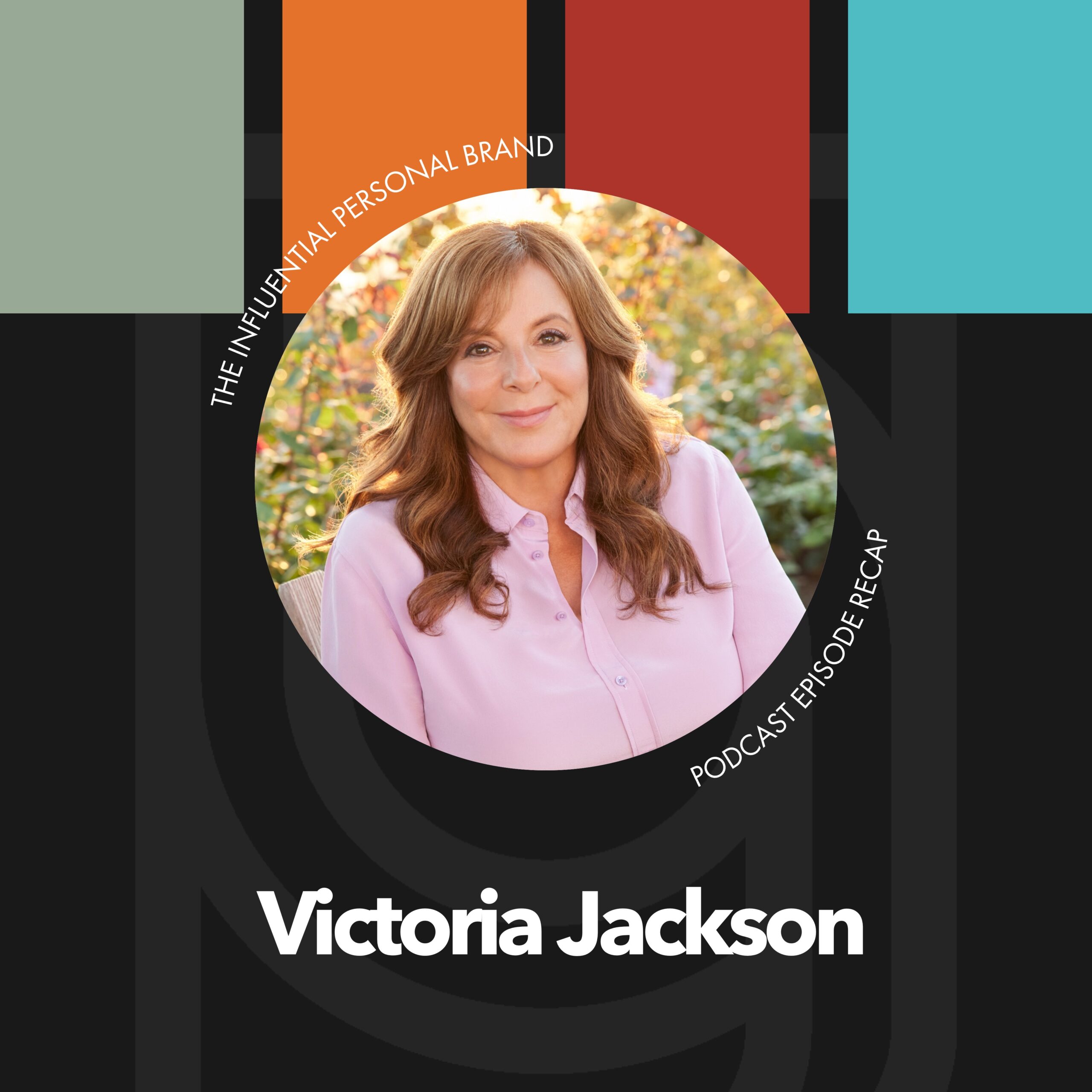RV (00:02):
Well, I always love a good chat around tax strategy and investing in financial stuff and just learning about money in general, because I don’t think there’s enough conversation and enough knowledge that is transferred around making money, saving money, keeping money, investing money, spending money wisely, and just in overall generating more, more money. And so I’m always looking forward to those opportunities. And I enjoyed that chat with Rob Luna. I wanted to share with you as part of that go, I just wanted to off the top of my head, grab five keys to being financially secure as an entrepreneur. So as I look back over like my career and mine and AJ’s journey as entrepreneurs to go, what are some things that have, have really led to our financial security, at least to the level that we have at now? And I just thought, man, let’s rattle these off ’cause these are good.
RV (01:01):
And, and, and I would’ve wanted to have known these or, or heard them over and over again as an entrepreneur. So here they are, five keys to being financially secure as an entrepreneur. Number one, get debt free to own your freedom. Get debt free to own your freedom. And this is one that I just, I will be forever grateful to Dave Ramsey because he has the program that teaches people how to get debt free. And we followed that thing to a t Now, I don’t know, it was coming up on 20 years ago when I went through financial piece, but those principles became a part of my financial psyche that I adapted and adopted that are ingrained still to me today that have, I think, set me up in a completely different financial capacity from several of my friends and colleagues and clients and, you know, even mentors and people I look up to.
RV (02:00):
And a huge part of it is just being debt free, because people try to make mathematical arguments for why maybe you shouldn’t be debt free, right? They try to make mathemat mathematical arguments for like, well, think of all the money you have tied up in your house, right? And going, if you took that money out of your house and instead had a, you know, debt on your house, you could be investing that money in other places and making more money. And sometimes, and in some markets, that’s sometimes true. But here’s what’s always true. When you don’t have debt, you are free. I mean, the Bible says this, right? The borrower is slave to the lender. And what’s, what is more powerful in your life than having millions of dollars is just being free to do whatever you want to do. And
RV (02:58):
That comes, that’s a mental thing. And it’s a spirit that’s a spiritual condition. And that has more to do with not owing people money than it does to do with how much you make. And one of the things that you’ll realize as you make more money, and hopefully you realize this, this is one of the things that AJ and I learned over the years, is that we don’t need more money. We need less stress. We don’t need more money. We need less, less complexity. Peace is the new profit. It’s not about going, oh, I have some number in my account. And then that number’s bigger and bigger and bigger. Like it’s just a number in an account. What really matters is your peace of mind. How do, how are you feeling? How secure are you? How stable are you? Versus how worried are you that if a change in the interest rates in the are, are gonna completely, you know, tank your business?
RV (03:55):
Or are you worried that if you don’t get a customer to pay in time, you’re not gonna have a chance to pay your vendor and you won’t make payroll. And like all of the stress that comes from leverage, which is like basically playing arbitrage with money, that is risky business. And it’s not that it can’t ever work, sometimes it does, but more often than not, it all nets out to be about the same as just doing it the simple way anyways. And regardless of it, it’s just when you come to a decision to go, I don’t need more money, I just need less stress, that is powerful. And that’s buying your own freedom. When you, when you’re debt free to go, once you’re debt free, you can buy whatever you want as long as you can pay cash for it. Like it, everything becomes simple.
RV (04:42):
But when you’ve got multiple investments and multiple, you, you know, loans from different people at different rates and some are variable and some are fixed, and like, it’s all of this stress to manage, even if you’re healthy, it’s like you have to keep an eye on all of these different things. It’s stressful. So get debt free and buy your own freedom. And I just go start small. Be willing to go start small and be willing to go slow. And over time, it adds up to be something that’ll be far more than you ever need and you won’t have the stress along the way. So that’s number one. Number two is invest in yourself First. Invest in yourself first. If there are, when, when you, when people think of investments, what they, they tend to think of like, ooh, buy real estate or invest in the market, or maybe do non-traditional investments, right?
RV (05:32):
Like, you know, artwork or crypto or you know, wine or like whatever. There’s all these different things. You, you, you know, currencies, there’s all these things you can invest your money into, but the number one thing you should invest your money into is yourself, your own mind, your own personal development. The, the, the greatest return on your money that you will ever get is strengthening your mind, your education, your knowledge, your, your mental capacity, and just you’re building your own confidence and your own strength and your ability to create wealth and create opportunity for yourself and those around you. And we just don’t hear about it. And people don’t think about investing in themself in enough of a literal way of like, if I could put money into the stock market that might grow at, you know, maybe 7%, maybe 8%, maybe 10% over years.
RV (06:25):
But if I put that money into myself, I go, I could grow my income exponentially over time, like in a, in a short order. If, if I learn how to do it and I learn and I’m, and I’m, I get in environments where I’m around other successful people. So invest in yourself first. Then the second thing I would invest in is invest in your business, right? Before I’d be looking at investing in the markets and all these things that you may or may not understand, and maybe you understand it better than I do. Like, you know, I consider myself reasonably smart, but there’s a whole lot of investment stuff that I don’t understand. I don’t understand all these fancy terms. And I have an MBA, like I have a, I have an MBA from a private university like I was a millionaire by the time I was 30 years old.
RV (07:08):
I have, I have, you know, been the, an entrepreneur now for a couple decades and there’s a whole bunch of this like speak this, this financial speak, I don’t understand. And all these, you know, you know, just weird terms. And I go, when I look around the people who have a lot of wealth and a lot of security, the big, the best investment is into yourself and then into your business. Because if you think about, like, you know, even trying to find, try to find a company that is gonna give you a 20% return, would, would be outrageous. It’d be so difficult. But if you can grow your profit margin as a business to 20% of profits a year, then that means every dollar you invest in that business is gonna give you back 20 cents. So if you can build your own business, that can, that can, can, can grow over time.
RV (07:54):
And maybe it’s, you know, it’s not a lot at first. You might, you know, break even, hopefully and make a little bit of money, 1%, 3%, 5%. But that business starts to grow. You inch it up and you’re gonna start, you build a business that clocks 15% a year, 20% a year, every single year for the rest of your life. Like you’ve built the greatest investment machine you have for yourself. Now, you don’t wanna have all your wealth tied up in your business ’cause then you don’t have diversity. ’cause If something happens and you get sick or you lose key employees or customers or vendors, or the market changes or regulation or competitor kills you, like, there’s, there’s risk right there. But, but a lot of that risk is a much more in your control than investing in some other asset that you have nothing to do with its performance.
RV (08:38):
So I always, you know, think, invest in yourself, invest in your business, then invest in your retirement. So that’s how I would think about investing. And I would go, okay, I wanna get debt free first. That’s simple. Then I wanna invest, but I wanna invest in myself and then I wanna invest in my own business, the things that I’m controlling. Like if I have, if I have a choice between place and money with some outside person or entity, or a real estate investment or some project or investing into the business that I run and operate and control every day, I’m gonna invest in that one, the one that I have control over, the one that I understand, the one that I can influence, the one that I can shape. And so we just don’t think of investing enough with just invest in yourself, invest in your own business.
RV (09:21):
So that’s investment number three. Okay, so talking about real investments. I’m gonna just say this and, and you know, maybe some of y’all will disagree. Have a boring investment strategy, have a boring investment strategy. You know, you heard Rob talk about buy, buy boring businesses. You know, Cody Sanchez is one of my favorite people to follow online. I’ve developed a little relationship with her recently and that she talks about buying boring businesses all the time. Like, your investment strategy should be boring. And I don’t, I think buying businesses is not boring. I think buying businesses is like scary and risky. And half the time that go, more than half the time that investment probably goes to zero. You know, just doing single, like, you know, investing in startups and stuff is that is not for the faint of heart. That is, that is, you know, typically very risky.
RV (10:12):
I’m talking about growth stock mutual funds like the, the, the s and p 500 in here in the us. These are, you know, the, the big large, stable enterprises that they’re not gonna make you millionaire overnight, but they’re gonna grow steady and consistently. And if something happens to those, if those all go under, that means the world is like, the world is in such dire straits. It doesn’t matter what your money is because you’re probably like you, you know, fighting for candles and, and water and stuff. Like these companies, the big companies, they’re, they’re, they’re, they’re, they’ve been around a long time. They’re stable. They’re not typically going anywhere. Y you know, they’re not going anywhere anytime soon or easily, right? And so it’s a boring investment strategy if you, if you don’t understand the investments, don’t make them. And, and if it feels like a lot of work to understand what it is, again, I would say don’t make it if it, if it, if it seems complicated or complex.
RV (11:12):
Like if you can’t explain what it is to someone else, don’t do it. And you know, if, if you’re doing it just because you saw someone on the internet telling you it was a good idea, man, be careful. I mean, just be careful. The, the people that I know that are the most happy, right? If peace is the new profit, that’s something I’ve been saying so much lately. Peace is the new profit. The people who are peaceful are not the people I know that make a a the most money. I know lots of people who make lots of money that aren’t peaceful, they’re constantly stressed because they’re constantly managing chaos. The people who I know are the most peaceful have simple plans, simple strategies, simple savings is they do simple things that they can understand and explain and, and that make sense to them. And they don’t do things because they wanna look smart or look sophisticated or to feel like they’re caught up at the crowd.
RV (12:12):
They, they do things that they actually understand. So have a boring investment strategy. Number four, choose abundance over scarcity. Choose abundance over scarcity. I think one of the most costly things that we have in the world today is a scarcity mentality. Simply stated. I think a scarcity mentality is, is often like an is is an an an either or thing. Either you can win or I can win. Abundance is going, we can both win, right? Abundance is going, there’s a, there’s a way to figure it out where everybody wins. Scarcity make feels like, well, if, if I help this person, that’s gonna take, if I help this person succeed, it’s gonna take something away from me. Abundance is thinking as I, if I help this person succeed, it’s gonna come back to me. And I think that too many people hold on too tightly to their money because they have scarcity.
RV (13:17):
They’re afraid that if they let that money go, it won’t come back to ’em. And so they don’t invest it, right? So what they do is they just hang on to it and, and they go, I don’t want anyone to steal it. I don’t wanna do anything with it. I just have to hold onto it. ’cause I’m not, I’m afraid if I let it go, it won’t ever come back. Well, one of the things that wealthy people do is, is they’re using their money. See, ironically, I think a lot of times people think that rich people have, are, are, are overly focused on money, or they’re like overly like, consumed with money and they go, oh, that’s why they have money, is because they just, all, they, they must love money. And that’s like their whole life. It’s their whole focus. That’s what people think.
RV (13:57):
That’s what I used to think, right? Coming up from, you know, a lower class family financially and, and not having much financial education until I self-educated. And in like my, you know, late teens and early twenties, what I have actually learned is that wealthy people, not all of ’em, right? Some wealthy people are not this way, but most of the wealthy people I know, they actually have the most healthy detachment from money because they know if they lose it, they’ll get it back. They’re not, they, they’re, they’re not hanging onto it for their, their own survival. They’re not so scared that going, oh, all of my security is in money. They’re going, no, I’m gonna invest in myself. I’m gonna invest in my business. I’m gonna invest in growth. I’m, I’m willing to take risks. I’m, I’m willing to. And, and I’m willing to invest in investments, whether it be real estate or it be the stock market or, you know, I I there’s not that many non-traditional investments that I am a fan of, at least unless you’re, unless you’re like a professional investor and investing’s all you do all the time and it’s all you think about and talk about.
RV (14:57):
But you, you have to be willing to think of money as a tool, right? The, the analogy I use is don’t think of your money as like a shield. Think of it as a tool. Like, like, don’t, don’t, don’t think of it as like, don’t depend on it, just for your safety. Think of it as like something you use to build something with. And that’s abundance is going. No, I, I, I I use money to, to make money. I mean, one of the things that we’ve done our whole life, we hire people to do everything. Like the number, probably the number one thing we spend money on even more than ourselves per se, is hiring other people around us to help us. We have lots of work that we need done. We need lots of help and going, part of why we do that is we don’t even make a lot of money, but we get more peace back because all the stuff there is to do, we hire, help people to help us do it.
RV (15:50):
And so even if we make no money, we go, well, at least we have help and we don’t have stress. And that’s the idea is, is is being willing to choose abundance over scarcity and, and be willing to invest. And, and by the way, that’s the risk of being an entrepreneur, right? Is you pay yourself last, right? The, the potential upside is one day you would make a lot of money, but it’s, it’s like we always pay ourselves last. Everyone else on our team gets paid whether there’s a good month or not. Like we have to pay them. That’s the commitment. And so that’s the risk. But you go, gosh, if we have, you know, there’s good months and bad months, and even if there’s bad months, I trust that like over time it’s gonna work out. That’s abundance, right? And it’s, it’s, it’s thinking long term.
RV (16:32):
And then number five this is another thing that I think this is related to abundance, and I don’t think enough people talk about this. And I think this is something that’s like maybe is kind of rare about me and aj. And I think this is something, I think part of what, how God blesses people with money. And part of how I think part of how other people bless people with their money and they wanna see people succeed is because of this. So number five is become great at helping other people make money, become great at helping other people make money. If you become great at helping other people make money, you will make a lot of money because people love being around people who help them make a lot of money. Like, and this is just something we do like, again, in the abundance mindset, our goal is to, is our goal is never to pay people the least amount possible.
RV (17:30):
Our goal is to pay people as much as we can. We wanna always pay at the top of the market. We don’t always have the money to do that, especially when we’re starting something new, right? So Brand Builder’s group is still only five years old. Like we’ve, we’re still, you know, we just coming outta startup mode. But like over time, we want to pay more money. We wanna pay our, our team the most we want. We wanna help make money for our clients. We wanna help our clients succeed. Why? Not because we need their money, but because we want to help them make money. We know if we help them make money, they’ll return it, they’ll help us make money. We, we really focus on trying to help our affiliates make more money to go, ah, how can we help our affiliates make more money?
RV (18:08):
If our affiliates make more money, they’re gonna wanna help us make more money. But I think if you focus on just going, how can I make more money for myself and all I care about is how do I make more money, then it’s like you’re taking money from other people. And so other people close off to you. But if you figure out how can I help the people around me make more money, then you’re opening a, you’re like opening the door, you’re opening a relationship, a connection between people to help you make more money. And you know, a lot of the people who are around who have been around us, they make more money because it’s a rising tide raises all ships, is we try to help them make more money. They’re working hard to take stuff off of our plate and make us free us up to be more productive and more efficient.
RV (18:55):
As we’re more productive and more efficient, we make more money and then we share that back with them. So this is, this is, again, is, is a difference and mentality. Most people are thinking just about themselves. How do I make more money? You know, who could I find that would just pay me the most? Versus going, what can I do to help the people around me make more money or help them have more time so that they can be more efficient, so that they can make more money trusting that it will flow back to them. And that’s what happens is I think money cascades down to the people who, who help. And, and that always happens. You know, and they say proximity is power. I would also say proximity is profit. I’m sure you’ve heard that before, right? Proximity is power. I, I think Tony Robbins said that.
RV (19:35):
I mean, I, that’s who I heard say it. I that lots of people have said it, but I, that’s who I think it was like the original source of it. I don’t know if it was him or not, but that proximity is power. But I would, I would adapt that to say proximity isn’t just power. Proximity is profit, right? And if you’re around, if you are literally in proximity to people who have the ability to create income and create revenue and build businesses, I promise you, if you help those people succeed, it will cascade back to you. We always want to reward the people who are helping us grow, right? And, and I’m saying that we like in a general sense and in a and in a literal sense of like me and aj, I mean, wouldn’t you right where you go, aren’t you going to reward the people who are most critical to like helping you grow?
RV (20:24):
Yes. If, if they’re really helping you and they really, you really have that mindset of like, it’s an effort, it’s a partnership, it’s a collaboration. We’re growing together. And so I’m constantly trying to find my, I’m constantly trying to find ways to add value to the people around me. I mean, just today, so I was on a call, I was on two different calls today with Ed Millet, some of you know, ed Millet you know, he’s, he’s one of our, our more well-known clients. And we’ve gotten know Ed a lot over the last few years ’cause we helped him with his book launch and we’ve done a number of things together. He’s one of our top affiliates. And I’m trying to figure out ways to make Ed more money, not just with us, but this other deal. And, and I brought Ed an opportunity that this is a, is an equity opportunity.
RV (21:06):
And I’m going, I mean, ed makes lots of money, right? But I’m going, how can I help him make more money knowing that if I can add value to Ed’s life, there’s a good chance that some of that value rolls back to me somehow. And I don’t always have to know how. I just have to trust that if, if I become great at helping other people make money, they’re gonna want to help me make money, they’re gonna want to reward me back. And, and, and that is true. I have found that to be true. And you, you align with people who are that way. And I know that’s true about me. If there’s, if there’s people around me who are helping me make money, I want to return and go as I make more money, I want to return it back to them. It’s a rising tide raises all ships.
RV (21:49):
And so proximity isn’t just power, proximity is profit. So pay attention to the people you’re around in your life to go, who, who has a capacity here to make a lot of money and how can I support them and, you know, be around them and partner with them and, and, you know, serve them and align with them and add value to their life. You’re likely going to win because of that. I mean, I have been the, the, the, the beneficiary of that, the recipient of that, and the benefactor of that also to other people. So there you have it. Five keys to being financially secure as an entrepreneur. First of all, get debt free to buy your own freedom. Number two, invest in yourself and your business first before you invest in other stuff. Number three, when it comes to inve outside investments, have a boring investment strategy.
RV (22:37):
Number four, choose abundance over scarcity. And number five, become great at helping other people make money. And you will make money with all of that. Just remember, peace is the new profit. You don’t need more money. You need less stress. You don’t need more money. You need as much as you need less complexity. I mean, we do want more money. You do, you, you should go for more money. You’re creating wealth for the people around you. But in reality, for most of us, we don’t need more money as much as we need less stress. And as we don’t need more money, as much as we need less complexity. So go out and create value in the world and watch the money flow back to you. Hopefully we’re helping you do that every time you listen to this show. So thanks for being here. Share this episode with someone who needs it. Keep coming back. If you haven’t yet, please go leave a rating for us on iTunes so that other people can see what our show is all about. We’re so grateful for you. We’ll catch you next time on the influential personal brand.



